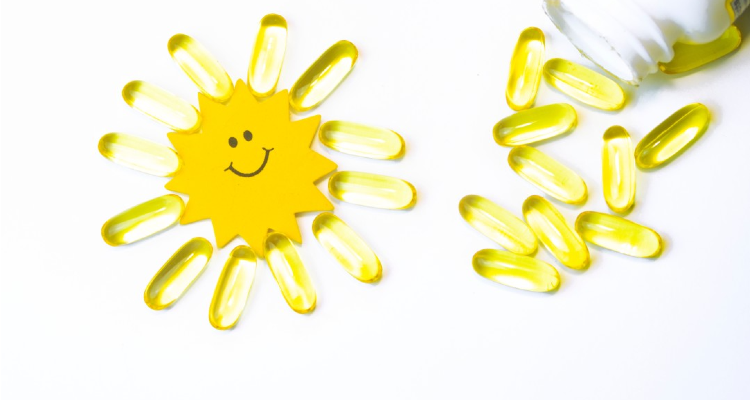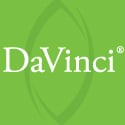
Vitamin D is commonly known as the "sunshine vitamin" because sun exposure delivers its benefits through the skin. However, many people reside in parts of the world where cool, cloudy weather and the angle from which sunlight hits the atmosphere means less vitamin D synthesized through the skin.
If you live above the Mason-Dixon line, your vitamin D levels likely are low, and liposomal vitamin D supplementation could prove beneficial.* Most of us know that it’s an essential nutrient, but what are vitamin D’s benefits, and why is liposomal delivery an excellent choice for optimal absorption and efficacy.
Why Take Liposomal Vitamin D
Many are familiar with vitamin D, yet inadequacies are still surprisingly common. According to CDC data gathered from 2001 to 2006, roughly one-quarter of the United States’ population was at risk of vitamin D inadequacy, and a further eight percent were at risk for deficiency.[1]
Liposomal delivery of vitamin D is by far the most effective method for optimal absorption because it encapsulates nutrients and compounds into highly fat-soluble lipid vesicles.
Liposomes are created from cholesterol and serve as protective mechanisms against digestive acids and other physiological components that would otherwise breakdown vitamin D before reaching its destination. Because liposomes have a low level of toxicity, they’re also less likely to trigger an adverse response and are more likely to be preserved as they pass through the gastrointestinal tract.
Liposomal vitamin D is better protected against oxidation and degradation than pills or tablets and, consequently, delivers its benefits more efficiently and effectively. These benefits amplify when vitamin D is taken alongside vitamin K2, a nutrient that synergistically pairs with vitamin D to support bone strength and development, and more.*

The Vitamin D and K2 Connection
Vitamin K is another fat-soluble nutrient best known for its role in blood clotting.* It works synergistically with vitamin D to facilitate calcium metabolism.*[2] There are two primary forms of vitamin K. Vitamin K1 is found primarily in plant foods like dark, leafy greens. In contrast, vitamin K2 is a family of compounds found mainly in animal sources and fermented foods.
Vitamin D maintains adequate blood calcium levels by improving calcium absorption, moving calcium from bones if there isn’t enough supplementation from foods.* Vitamin K directs calcium to where it needs to go.* It activates osteocalcin, a protein that signals calcium accumulation in teeth and bones, and matrix GLA protein, which prevents calcium from accumulating in soft tissues such as the blood vessels.
Supplementing vitamin D without vitamin K might create a risk of blood vessel calcification, which is implicated in the development of certain health problems.*
Benefits of Vitamin D
There are many benefits of vitamin D supplementation, including calcium absorption, immunity, and cardiovascular health.*
Supports Calcium and Phosphorus Absorption
Vitamin D supplementation supports calcium and phosphorus absorption and bonding, crucial for the body’s development and maintenance of healthy teeth and bones.* It is also responsible for supporting calcium metabolism, which is necessary for the nervous system to function normally.*
Improves Immune Function
Vitamin D is also well known for supporting overall immune health and has been shown to reduce the risk of autoimmune issues, and seasonal health challenges.*[3][4]
Key for Cardiovascular health
Research shows that vitamin D decreases the likelihood of heart-related challenges by supporting various cardiovascular mechanisms.*[5]
The Main Takeaways:
- Vitamin D supports a myriad of key bodily functions, including healthy development of bones and teeth, proper immune function, and heart health.*
- A liposomal delivery system of supplemental vitamin D is optimal for absorption and efficacy.
- Pairing vitamin D with vitamin K2 is critical for calcium metabolism and blood vessel calcification prevention.*
Since vitamin D deficiency is common, consider having your vitamin D serum levels tested by your preferred healthcare practitioner. Keep in mind that results indicate levels in the blood three to four months prior. This is because vitamin D is stored within fat cells.
Based on your results, work with your practitioner to determine if a liposomal D or liposomal D-K2 nutritional supplement is appropriate for you. Many experts agree that the most effective supplementation method is a D-K2 product taken consistently all year round.

Sources:
[1] "Products - Data Briefs - Number 59 - March 2011 - CDC." https://www.cdc.gov/nchs/products/databriefs/db59.htm. Accessed 11 Nov. 2020.
[2] van Ballegooijen, A. J., Pilz, S., Tomaschitz, A., Grübler, M. R., & Verheyen, N. (2017). The Synergistic Interplay between Vitamins D and K for Bone and Cardiovascular Health: A Narrative Review. International journal of endocrinology, 2017, 7454376. https://doi.org/10.1155/2017/7454376
[3] Urashima M, Segawa T, Okazaki M, Kurihara M, Wada Y, Ida H. Randomized trial of vitamin D supplementation to prevent seasonal influenza A in schoolchildren. Am J Clin Nutr. 2010 May;91(5):1255-60. doi: 10.3945/ajcn.2009.29094. Epub 2010 Mar 10. PMID: 20219962.
[4] Munger KL, Levin LI, Hollis BW, Howard NS, Ascherio A. Serum 25-Hydroxyvitamin D Levels and Risk of Multiple Sclerosis. JAMA. 2006;296(23):2832–2838. doi:10.1001/jama.296.23.2832
[5] Wang, T. J., Pencina, M. J., Booth, S. L., Jacques, P. F., Ingelsson, E., Lanier, K., Benjamin, E. J., D'Agostino, R. B., Wolf, M., & Vasan, R. S. (2008). Vitamin D deficiency and risk of cardiovascular disease. Circulation, 117(4), 503–511. https://doi.org/10.1161/CIRCULATIONAHA.107.706127


















